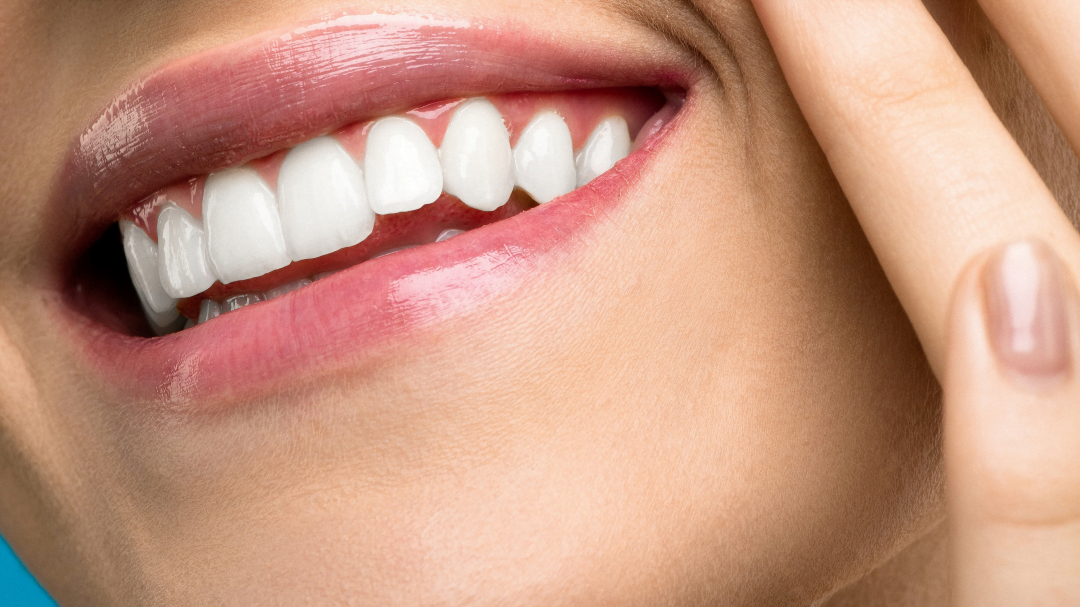
Having a bright and white smile is something that many people desire. However, age, genetics, and lifestyle choices can cause teeth to become stained or discolored over time. Fortunately, several natural ways exist to whiten teeth and restore their natural beauty.
Not only can they whiten your teeth, but they also provide natural remedies without using harsh chemicals or undergoing expensive teeth whitening treatments. In this article, we will explore the best natural teeth whiteners and some helpful tips to avoid teeth discoloration.
What are the Best Natural Ways to Whiten Your Teeth?
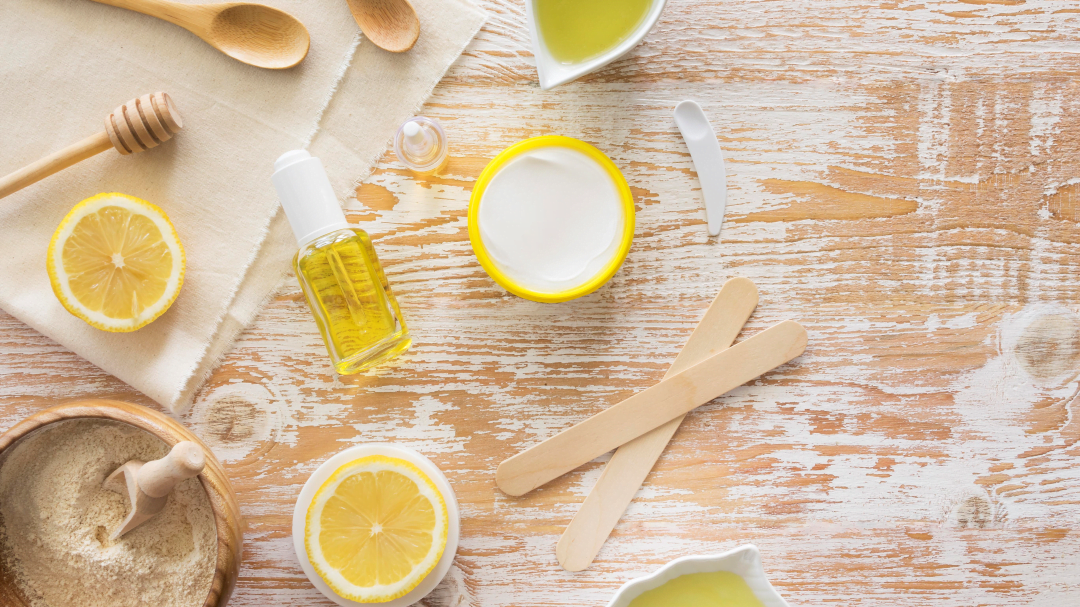
1. Using Baking Soda
Baking soda, also known as sodium bicarbonate, is a popular ingredient used in various toothpaste and whitening products. It acts as a mild abrasive that helps remove surface stains on the teeth, making them appear whiter. To use baking soda as a natural teeth whitener, mix a small amount with water to form a paste and brush your teeth with it for a few minutes. However, be cautious not to use this method too frequently, as excessive use of baking soda can wear down the enamel.
2. Using Hydrogen Peroxide
Hydrogen peroxide is another effective natural teeth whitener. It can penetrate the enamel and break down stains, thereby lightening the color of your teeth. To use hydrogen peroxide for teeth whitening, mix it with equal parts water and use it as a mouth rinse after brushing your teeth. However, it is important to use a low concentration of hydrogen peroxide to avoid any potential damage to the teeth and gums.
3. Using Apple Cider Vinegar
Apple cider vinegar is a natural disinfectant and can also help whiten your teeth. It contains acetic acid, which has a bleaching effect on the teeth and helps remove stains. To use apple cider vinegar as a mouthwash, dilute it with water and swish it in your mouth for a few minutes. However, it is important to note that apple cider vinegar is highly acidic and should be used sparingly to avoid damaging the enamel.
4. Using Baking Soda and Toothpaste
Combining baking soda and toothpaste can be very effective in whitening your teeth. Baking soda acts as a gentle abrasive, while toothpaste contains additional ingredients that promote oral health and help remove stains. Mix a small amount of baking soda with your toothpaste and brush your teeth as usual for a brighter smile.
5. Using Coconut Oil for Oil Pulling
Oil pulling is an ancient technique that involves swishing oil in your mouth to improve oral health and whiten your teeth. Coconut oil is a popular choice for oil pulling due to its antibacterial properties. Simply swish a tablespoon of coconut oil in your mouth for 15-20 minutes, then spit it out and rinse your mouth with water. Regular oil pulling can help reduce plaque buildup and promote whiter teeth.
6. Rinsing with Hydrogen Peroxide
As mentioned, rinsing with a diluted hydrogen peroxide solution can help whiten teeth. After brushing your teeth, swish a mixture of hydrogen peroxide and water in your mouth for a minute or two, then spit it out and rinse thoroughly with water. Repeat this process once or twice a week to maintain whiter teeth. However, it is important to note that apple cider vinegar should be used in moderation to avoid damaging the enamel.
7. Using a Baking Soda and Hydrogen Peroxide Paste
Combining baking soda and hydrogen peroxide can create a powerful whitening paste. Baking soda can help remove surface stains and plaque buildup on teeth, making them appear whiter. While hydrogen peroxide acts as a mild bleaching agent that can help lighten tooth discoloration. Mix a small amount of baking soda and hydrogen peroxide to form a paste, then brush your teeth with it for a few minutes. This paste helps remove surface stains and can make your teeth appear whiter and brighter.
8. Using Toothpaste Specifically Designed for Whitening
Many toothpaste brands offer whitening variants that contain ingredients specially formulated to whiten teeth. These toothpastes often contain mild abrasives and chemicals that help break down stains on the teeth. Regular whitening toothpaste can gradually lighten the color of your teeth and maintain a whiter smile.
9. Strawberries
Strawberries contain malic acid, a natural enzyme that can help break down surface stains on teeth. They are also rich in vitamin C, which can help remove plaque and brighten the teeth. Mash up one or two ripe strawberries to create a pulp. Apply the pulp to your teeth and leave it on for about 5 minutes. Then, rinse your mouth thoroughly to remove any residue. Limiting the frequency of using this method is crucial, as the natural sugars and acids in strawberries can potentially harm tooth enamel if used too frequently.
10. Activated Charcoal
Activated charcoal is a porous substance that can absorb toxins and impurities. It’s also effective in removing surface stains from your teeth. Mix a small amount of activated charcoal with water to create a paste, and brush your teeth with it for two minutes. Rinse your mouth with water and repeat once a week.
While these natural methods can have some teeth-whitening effects, it’s essential to approach them cautiously and avoid excessive use. They are not as potent as professional teeth whitening treatments, and the results may vary depending on the severity of tooth stains and the enamel’s condition. Additionally, using natural teeth whitening methods should not replace regular dental care and professional cleanings. Always consult a dentist before trying new teeth whitening techniques to ensure they are safe for oral health.
How Can a Dentist Help Whiten Your Teeth?
Professional Whitening Treatments
A dentist can provide professional whitening treatments if you want more dramatic results. These treatments involve applying a bleaching agent directly onto your teeth and using a light or heat source to activate the whitening process. Professional whitening treatments can effectively remove stains and significantly lighten the color of your teeth in just one or two sessions.
Recommendation for At-Home Whitening Kits
A dentist can also recommend custom-made at-home whitening kits for your teeth. These kits usually include a set of custom-fitted trays and a professional-grade whitening gel. Following the dentist’s instructions, you can safely whiten your teeth at home and achieve professional-level results.
Professional Cleaning to Remove Stains
Regular dental cleanings are important for maintaining oral health and help remove surface stains from your teeth. During a professional cleaning, a dental hygienist will use specialized tools and techniques to remove plaque, tartar, and stains, leaving your teeth looking cleaner and brighter.
Tips to Avoid Teeth Discoloration

Although genetics, age, and other factors can contribute to teeth discoloration, some tips and practices can help prevent it. By taking proactive steps, you can keep your teeth looking their best and avoid the need for extensive whitening methods or potential damage to your teeth.
- Maintain Good Oral Hygiene: Regular brushing, flossing, and using mouthwash can prevent plaque buildup and the formation of stains on your teeth.
- Limit Stain-Causing Foods and Drinks: Reduce consumption of foods and beverages that stain teeth, such as coffee, tea, red wine, and certain acidic or sugary foods.
- Use a Straw: When drinking stain-causing beverages, use a straw to minimize contact with your teeth and reduce the risk of discoloration.
- Rinse Your Mouth After Eating: Rinse your mouth with water to help remove any leftover food particles that may lead to staining.
- Avoid Tobacco Use: Smoking or other tobacco products can cause severe teeth discoloration. Avoiding tobacco is not only beneficial for your oral health but also for your overall well-being.
- Try Natural Teeth Whitening Remedies: Consider using natural teeth whitening remedies, such as brushing with baking soda, using coconut oil for oil pulling, or rubbing the inside of a banana peel on your teeth.
- Be Cautious with Hydrogen Peroxide: If using toothpaste with hydrogen peroxide or other home remedies, be mindful of the concentration and duration to prevent any potential damage to your teeth.
- Regular Dental Checkups: Visit your dentist regularly for professional cleanings and checkups. A dental professional can identify early signs of discoloration and provide appropriate advice for maintaining healthy teeth.
- Consider Professional Teeth Whitening: If you desire a whiter smile, consult a dentist regarding safe and effective teeth whitening options that suit your needs.
- Stay Hydrated: Drinking plenty of water can help wash away food particles and maintain saliva flow, which aids in neutralizing acids and protecting teeth from stains.
By implementing these tips and practicing good oral care, you can naturally help prevent teeth discoloration and enjoy a brighter, healthier smile. Remember, individual results may vary; consulting a dentist for personalized advice is always recommended.
Looking For Something More Powerful? Here’s a Safe and Trusted Product for Teeth Whitening:
If you have tried every natural way of whitening your teeth and you want something more powerful, it’s important you try FortBite.
Discover the groundbreaking benefits of using FortBite, a revolutionary oral strong-tooth supporting solution that not only improves gum health but also aids in achieving a whiter, more radiant smile.
After extensive research, scientists have uncovered a crucial factor behind dental issues – “silent reflux.” This condition is very common and allows harmful acids to reach the mouth, breaking down its natural defenses and leading to the gradual deterioration of oral health.
FortBite addresses this issue at the start, promoting a healthy balance in the digestive system and preventing acid reflux, ultimately fortifying the teeth and safeguarding against tooth decay.
To fully grasp why tooth decay occurs, it’s essential to understand the role of oral bacteria. Our mouths are teeming with various types of bacteria, both good and bad. When we consume sugary or starchy foods, these harmful bacteria feed on the leftovers, producing acids that attack the tooth enamel.
Repeated exposure to these acids weakens the enamel, leading to cavities and decay over time. Poor oral hygiene, inadequate brushing, and irregular dental checkups can exacerbate the problem, leaving our teeth vulnerable to decay and sensitivity.
FortBite tackles this issue head-on by enhancing the mouth’s natural defenses and promoting a healthy environment that inhibits bacterial growth. By using this natural supplement regularly, you not only strengthen your teeth but also reduce the chances of tooth decay caused by harmful bacteria and toxins.
FortBite helps unlock the secret to healthier teeth, a brighter smile, and the confidence to share it with the world.
Here is a video on why FortBite is so effective:
The science behind FortBite Video
Frequently Asked Questions
Q: What are natural teeth whiteners?
A: Natural teeth whiteners refer to safe and effective methods that can be used to brighten your smile without using harsh chemicals or undergoing dental procedures.
Q: What are some common natural teeth whitening methods?
A: Some common natural teeth whitening methods include baking soda, hydrogen peroxide, apple cider vinegar, and coconut oil.
Q: How does baking soda help in whitening teeth?
A: Baking soda is a mild abrasive that can help remove surface stains from your teeth and make them appear whiter.
Q: Can I use hydrogen peroxide to whiten my teeth?
A: You can use hydrogen peroxide as a natural teeth-whitening method. However, it is important to use it in moderation and follow the recommended instructions to avoid any potential damage to your teeth and gums.
Q: How can apple cider vinegar whiten teeth?
A: Apple cider vinegar has natural bleaching properties that can help remove stains from your teeth and make them appear whiter. However, it is important to use it sparingly, as excessive use can erode the enamel of your teeth.
Q: How can I use coconut oil for teeth whitening?
A: You can use coconut oil for teeth whitening by practicing oil pulling. Swish a tablespoon of coconut oil in your mouth for 10-15 minutes, then spit it out. This can help remove bacteria and surface stains from your teeth.
Q: Is it safe to use natural teeth whitening methods?
A: Natural teeth whitening methods are generally safe when used correctly and in moderation. However, it is always recommended to consult your dentist before trying any new whitening method, especially if you have dental issues or sensitive teeth.
Q: How long does it take to see results with natural teeth whitening methods?
A: The results of natural teeth whitening methods may vary from person to person. It may take several weeks of consistent use to notice a significant improvement in the whiteness of your teeth.
Q: Are natural teeth whiteners as effective as professional teeth whitening products?
A: Natural teeth whiteners may be less effective than professional teeth whitening products, especially for deep stains. However, they can provide noticeable improvement in the whiteness of your teeth and are a more affordable and convenient option.
Q: Can natural teeth whiteners help with yellow teeth?
A: Natural teeth whitening methods can help with yellow teeth by removing surface stains and making your teeth appear whiter. However, if underlying dental issues cause your yellow teeth, it is best to consult a dentist for proper treatment.
Conclusion
In conclusion, exploring natural teeth whitening methods at home can offer a safe and accessible alternative to conventional teeth whitening options. While genetics, age, and other factors may contribute to teeth discoloration, implementing these natural techniques can help remove surface stains and enhance the brightness of your smile without causing significant damage to your teeth.
By maintaining good oral hygiene, being mindful of stain-causing foods and drinks, and considering gentle natural remedies, you can take proactive steps to whiten your teeth in the comfort of your home naturally.
However, it is essential to manage expectations and understand that these methods may not deliver the same level of whitening as professional treatments. If seeking more significant results or facing persistent discoloration, it’s best to consult with a dentist for professional treatment options.
For more awesome articles like this, join our community at the Family Hint today!

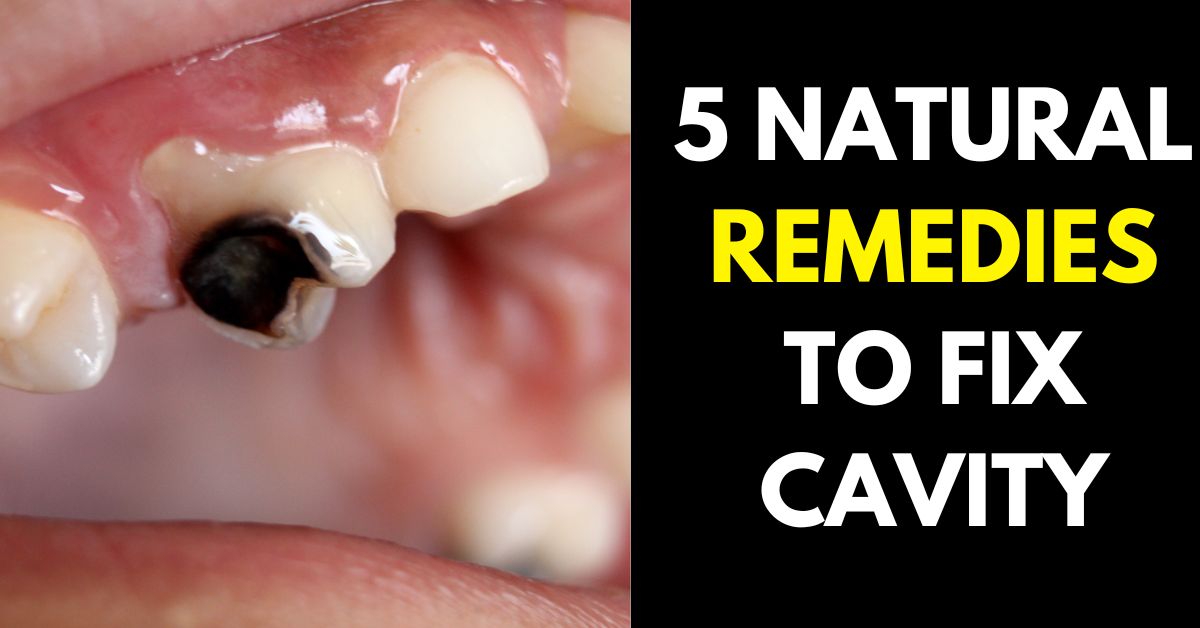

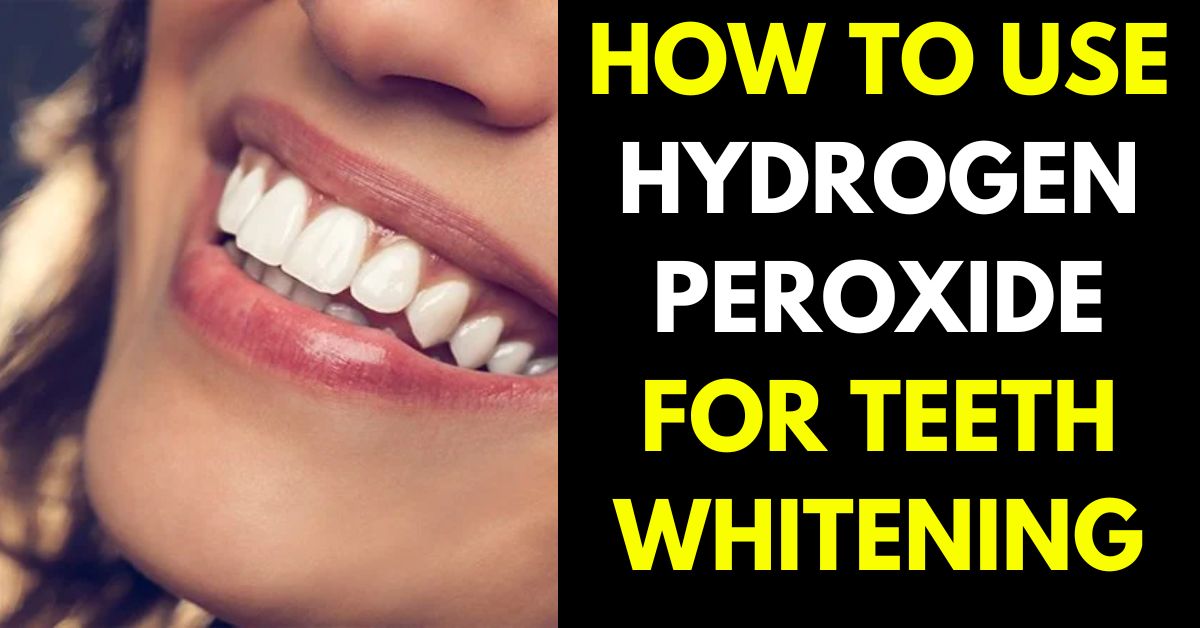
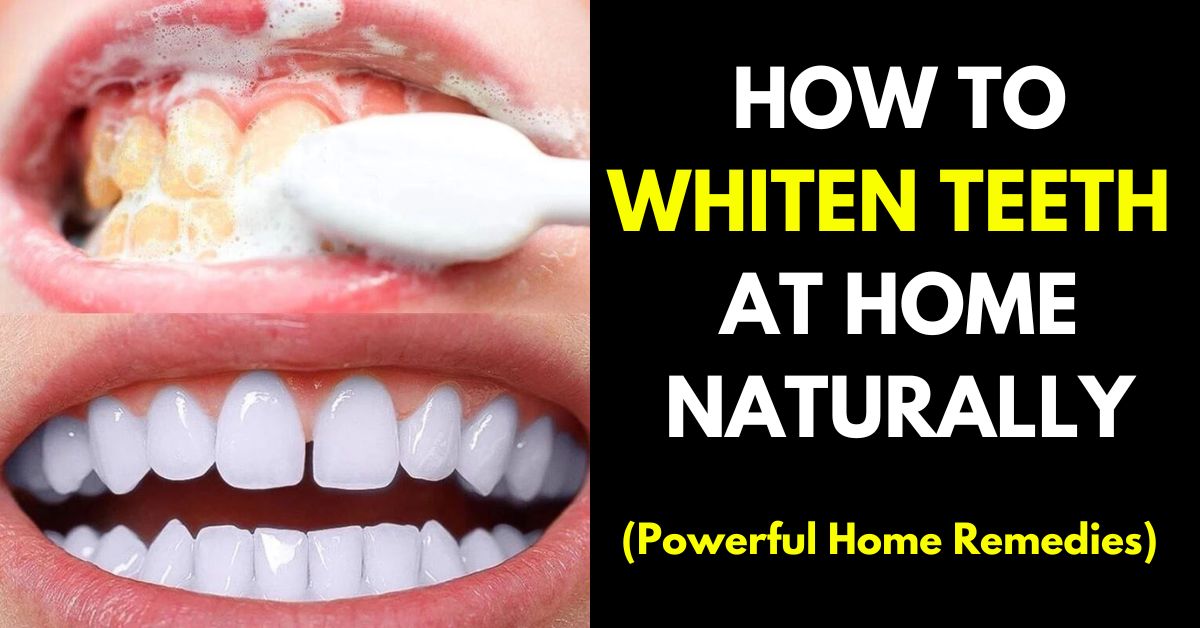
1 comment
The subsequent time I read a blog, I hope that it doesnt disappoint me as a lot as this one. I imply, I know it was my option to learn, but I truly thought youd have something interesting to say. All I hear is a bunch of whining about something that you could fix if you werent too busy looking for attention.
Comments are closed.